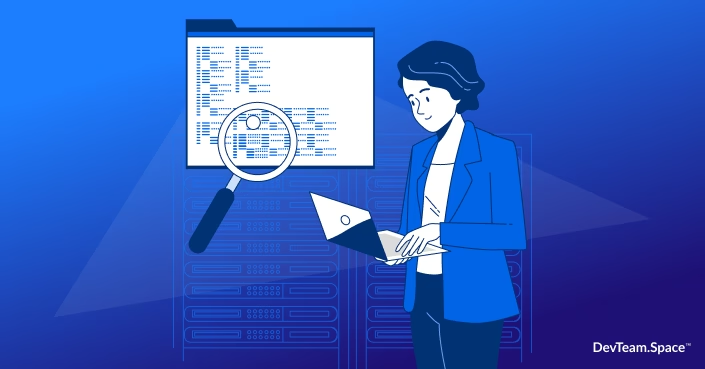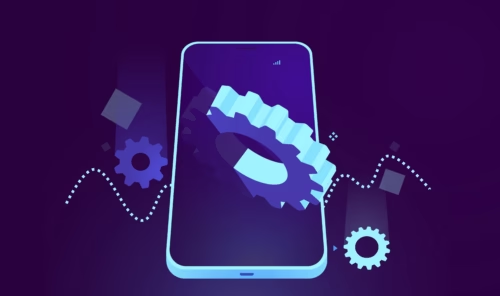Ask any software expert and they will tell you that the primary resource that helps organizations succeed is data. However, that assertion only holds up if organizations can get actionable intelligence from their data.
Why is data so important? Well, companies can take their strategic decision-making to the next level by extrapolating insights and then making informed decisions based on hard data rather than human intuition. It is that simple.
Organizations undertake data science projects to develop the tools that allow them to derive such valuable insights, and it is data scientists who lead such projects.
Apart from their visibility, data science projects are complex due to the technologies involved. Data scientists often use artificial intelligence, machine learning, statistics, data analysis, data modeling, and, of course, big data pools in these projects.
Data scientists are in huge demand. You might also find it hard to hire your first data scientist, especially if you have any niche skill requirements. As a result, you need to strategize and execute your hiring program effectively.
It can be risky to hire freelance data scientists. Often, your best bet is to hire data scientists from trusted software development companies that outsource their full-time developers. DevTeam.Space is one such company. But more on that later.
You first need to understand what skills your data scientists will require. Please note these are general skills so please review your project carefully to ensure you know any supplementary skills that you might need.

Get a complimentary discovery call and a free ballpark estimate for your project
Trusted by 100x of startups and companies like
Primary technical skills of data scientists
A data scientist needs the following primary skills:
- Solid understanding of data science to solve complex problems;
- Proficiency with different programming languages like Python and R that are extensively used in data science;
- Experience in using Python libraries like Scikit-Learn;
- Expertise in data wrangling;
- Deep knowledge of data mining, including data collection and data analysis;
- Proficiency with complex data visualization;
- Sound data modeling skills;
- Extensive data management experience;
- Technical expertise in data warehouse solutions, like Amazon Redshift, Google Cloud Snowflake, etc.
- SQL expertise;
- Knowledge of SQL and NoSQL databases like PostgreSQL, MySQL, MongoDB, etc.;
- Experience with Hadoop, the popular big data framework;
- Knowledge of statistics and statistical analysis tools;
- In-depth knowledge of machine learning;
- Considerable experience in different types of machine learning algorithms like supervised algorithms, unsupervised algorithms, etc.;
- Proficiency with important ML algorithms like Artificial Neural Networks, Support Vector Machine, K Means Clustering, Naive Bayes Classifier, etc.;
- Extensive experience in developing and testing machine learning models;
- Knowledge of statistical methods to convert raw data to useful insights;
- Experience in implementing ML models;
- Good understanding of other Artificial Intelligence (AI) branches like Natural Language Processing (NLP);
- Sound knowledge of predictive analytics and predictive modeling to analyze the present data for various use cases like fraud detection, risk assessment, etc.
- Scripting skills;
- Good knowledge of tools like MatLab, GGplot, etc.
- Experience in version control tools like Git for code collaboration, code tracking, project documentation, etc.
Other software development skills required by qualified data scientists
Look for the following vital skills when hiring a data scientist:
A. Statistical Analysis
Data scientists should have a solid understanding of statistical concepts and be proficient in applying statistical methods to analyze data and draw meaningful insights.
B. Data Manipulation and Cleaning
Data scientists must be skilled in data wrangling, cleansing, and preprocessing techniques to deal with noisy, incomplete, or inconsistent data.
C. Data Visualization
The ability to effectively communicate data-driven insights through visualizations is crucial. Data scientists should be skilled in using tools like Matplotlib, ggplot, Tableau, or Power BI to create informative and compelling visualizations.
D. Domain Knowledge
Data scientists need a deep understanding of the industry or domain they work in. This helps them ask the right questions, identify relevant variables, and apply context-specific techniques to solve domain-specific problems.
E. Expertise in Big data technologies required by a data scientist
Data scientists work with vast amounts of data and need to be experts in big data technologies to handle these large volumes of data.
Your data scientist should be familiar with big data technologies, such as Hadoop, an open-source framework for distributed processing of large datasets. Your data scientist should have a sound understanding of Hadoop architecture, components (HDFS, MapReduce, YARN), and ecosystem (Hive, Pig, etc.)
Real-time data processing is an essential aspect of data science. Your data scientist should have expertise in technologies like Apache Kafka that enable ingestion, processing, and processing of continuous data streams.
F. Software testing skills for a data scientist
While software testing might not be the core requirement for a data scientist, a good knowledge of software testing is beneficial for a data expert in certain situations.
For example, software testing skills help a data scientist with data validation. Software testing techniques help validate the quality, accuracy, and integrity of data. Moreover, different testing methodologies, like train-test splits, cross-validation, etc., facilitate proper model testing and validation.
A data scientist also writes code to clean data, visualize data, build models, etc. Understanding of Unit and Integration testing frameworks like pytest helps a data scientist test code for functionality, identify bugs, and maintain code quality.
Competencies needed by the best data scientists
Apart from sound technical knowledge, top data scientists need a few additional competencies. We often call these competencies “soft skills”. These are as follows:
- Communication skills
Data scientists need to effectively communicate with a wide array of stakeholders. They need to communicate with their team and the other software development team members in your organization. Data scientists often need to communicate with the business stakeholders too. In short, they need good communication skills. - Problem-solving skills
Companies undertake data science projects to solve high-priority business questions and reach their business goals. Data science projects tend to be complex, and data scientists need to proactively solve project problems. They need problem-solving skills. - Leadership skills
Data scientists work with many stakeholders, and senior data scientists might lead a sizeable team. In such a case, they need solid leadership skills. - Teamwork
Businesses take up data science projects to improve their strategic decision-making capabilities. Such projects typically need proactive participation and input from many parts of the organization. Teamwork by every software developer and data scientist, in addition to others, is essential to ensure the effective participation of these diverse stakeholders. - Commitment
Their inherent complexities introduce a degree of uncertainty within data science projects. Such uncertainties can impact the project budget, schedule, scope, and quality requirements. You need a committed world-class team to meet your project requirements despite uncertainties. - Empathy
Data scientists need to develop a system that offers actionable insights. Such systems must meet the specific requirements of organizations. Data scientists must have empathy to identify these requirements from the standpoint of the end-users. - Continuous Learning
The field of data science is constantly evolving, so data scientists must have a thirst for learning and a desire to stay fully updated with the latest advancements in algorithms, tools, and methodologies. - Business Acumen
Data scientists should possess strong business insights to connect data-driven insights with strategic decision-making. They need to understand the business goals, identify opportunities for data-driven solutions, and effectively communicate their findings to non-technical stakeholders.
How to hire the best data science candidates?
You now know the skill requirements of a data scientist job. You can initiate the hiring process now. Your next steps are as follows:
1. Decide the kind of platform for hiring data scientists
You execute a data science project to improve the strategic decision-making process within your organization, be this focused on operational efficiency, sales and marketing, etc. Your company wants to solve tricky business questions by gathering insights from data elements like consumer behavior, etc.
The entire senior leadership team in your company, indeed your company's future, will depend on the data science project you execute. To put it simply, you can’t afford to fail with such an important project.
Your hiring process needs to be effective so that you can hire the right data scientist. The right hire improves your chances of success, whereas a wrong hire can derail your project. Therefore, you first need to choose the right hiring platform.
You might feel tempted to hire freelance data scientists. Freelance platforms might enable you to get a data scientist at a low hourly rate. We don’t recommend this approach unless you really don’t have the budget or are building a very simple project.
Most data science projects tend to be complex. Freelancers work only part-time on your project. Managing the work of part-timers can be hard in most cases, and it’s harder with complex projects. You will find this challenge compounded in the case of remote freelancers.
Added to this, freelancers might leave your project in the middle of it (we have had to pick up multiple projects due to the original freelancer leaving at short notice). You will then have to find replacements. Freelance platforms don’t offer any project management support, therefore, you are on your own.
We recommend you hire dedicated data scientists from trusted software development companies like DevTeam.Space. Our data scientists work full-time for us and so we guarantee their dedication to your project. This approach ensures there won’t be any nasty surprises.
Hire expert developers for your next project
1,200 top developers
us since 2016
We routinely encourage our data science professionals to upskill, therefore, they are both motivated and up to date in all the latest technologies. Our dedicated account manager works closely with your project manager to ensure the most streamlined development process possible.
If you wish to learn more, then click on one of our banners or wait until the end of the article to see how to hire the best data scientist from DevTeam.Space.
2. Interview and choose the right data scientist candidates
If you are using job boards or freelancer platforms, then once you have chosen a hiring platform, and have created a job posting with a job description, job seekers will respond to your job ad (you don’t need to do this when you hire from software development companies such as DevTeam.Space).
You can then start the interview process. Get help from friends or colleagues if you don’t have data science skills. You can also consult data science interview questions found on the Internet.
Do ask questions covering all of the relevant technology areas. Ask questions that help you to evaluate the hands-on experience of candidates. Avoid asking only theoretical questions.
When outsourcing from a software development company then you should meet the developer and have a brief chat regarding their background, skills, and past projects. You can ask some detailed questions but you don’t need to do anywhere near the level of questioning as when hiring from a freelancer platform. We do this hard work for you.
Check how candidates solved past project problems. Explain your business requirements and ask how they would approach your project. You should expect specific responses. If you hear only jargon and not detailed specifics then that’s a red flag.
3. Provide detailed information about your data science project
You have selected the right data scientists and data engineers. You now need them to quickly get up to speed so they can start being productive. Effective onboarding goes a long way toward that.
Explain the project requirements to your new data scientist or data science project team. Share the required technical documents with them. These documents might include business requirements, technical solutions, etc.
Your new team needs access to the project’s technical environment. Provide the required access to the code repository and other specific tools.
Introduce the new team members to your existing team. Explain the roles and responsibilities of all the other team members.
Describe the project plan, subsequently, explain the project schedule. Talk about the milestones. Explain the project deliverables. Set up a solid communication process, furthermore, establish accountability.
Interviewing tips to consider when you hire data scientists
Take a look at the following suggestions when you hire data scientists:
Interviewing a data scientist requires a thoughtful approach to assess their technical skills, problem-solving abilities, and if they are fit for the role. Here are some steps to help you conduct an effective data scientist interview:
Technical screening
Begin with a technical screening to assess the candidate's proficiency in programming languages (e.g., Python, R, SQL), statistical analysis, machine learning, and data manipulation. Give coding exercises (see below) or pose data-related problems to evaluate their problem-solving skills.
Past projects and experience
Explore the candidate's past projects and experience in data science. Ask them to describe their role, the challenges they faced, the methodologies they employed, and the outcomes they achieved. Assess their ability to communicate complex concepts clearly and concisely.
Domain knowledge
Evaluate the candidate's understanding of your industry or domain. Assess their familiarity with relevant datasets, techniques, and any specific domain expertise they possess. Ask about their approach to understanding and addressing domain-specific challenges.
Collaboration and communication
Data scientists often work in interdisciplinary teams, so assess the candidate's ability to collaborate and communicate effectively. Pose scenarios where they had to work with non-technical stakeholders or explain complex concepts to a diverse audience. Look for their interpersonal skills, adaptability, and teamwork.
Problem-solving skills
Present the candidate with real-world data problems or hypothetical scenarios and evaluate their problem-solving approach. Look for their ability to break down complex problems, identify relevant variables, propose suitable analytical techniques, and communicate their methodology.
Data ethics and privacy
Assess the candidate's understanding of data ethics, privacy regulations, and their approach to handling sensitive or confidential information. Inquire about their experience with ensuring data integrity, security, and compliance in their previous work.
Cultural fit and growth mindset
Consider the candidate's alignment with your organization's values, culture, and long-term goals. Evaluate their willingness to learn, adapt, and grow in a rapidly evolving field. Ask about their preferred learning resources, their participation in conferences or workshops, and their strategies for staying updated.
Hire expert developers for your next project
References and follow-up
If the candidate progresses to the later stages of the hiring process, conduct reference checks to validate their skills, work experience, and professionalism. Follow up with any additional questions or assessments necessary to finalize the hiring decision.
Examples of interview questions to ask when hiring data scientists
Ask questions that go beyond theoretical knowledge. You should ask questions that help you evaluate the hands-on experience of data scientists. Look at the following examples:
A. How to avoid the overfitting of a model?
Answer:
You can avoid overfitting a model by following one or more of the following best practices:
- You should keep the model simple. Use fewer variables. You should also remove irrelevant data upfront.
- Use cross-validation techniques. An example is the “k folds cross-validation” technique.
- Utilize regularization techniques. You can avoid model parameters that can cause overfitting.
B. What are the differences between univariate, bivariate, and multivariate analysis?
Answer:
The univariate analysis deals with data containing only one variable. Data scientists use this type of analysis to describe the above-mentioned data and find patterns within it.
Bivariate analysis is applicable for data with two variables. Data science teams use this type of analysis to find causes and relationships in the data sets.
Multivariate analysis is similar to bivariate analysis, however, there are more than two variables in the corresponding data sets. There can be more than one dependent variable in such data sets.
C. How would you maintain ML models that you deployed in data science projects?
Answer:
The following best practices are important for maintaining ML models deployed in data science projects:
- Keeping track of predictions made by an ML model;
- Maintaining a record of the actual values against the above-mentioned predictions;
- Conducting root cause analysis for wrong predictions;
- Periodically re-training the ML model with new data to improve its performance.
D. What are some feature selection methods to select the right variables?
Answer:
The two main methods to select the right variables or features for a machine learning model by evaluating their individual data points are the filter and wrapper methods.
Filter methods consider the relevance of variables based on their intrinsic properties, such as the correlation with the target variable. Some common filter methods include variance thresholding, chi-square test, linear discrimination data analysis, etc.
Wrapper methods select features based on their impact on the predictive performance of a specific machine learning model. They warp the variable selection process around the machine learning model, training and evaluating the algorithm on different feature subsets. Some common wrapper feature selection methods include recursive feature selection, forward selection, etc.
E. What are some quick techniques for cleaning bad data in a dataset?
Answer:
Some quick techniques for cleaning bad data include removing duplicate entries, handling missing values through imputation or deletion, and correcting inconsistent formatting or data types. These techniques can help improve data quality and reliability for analysis.
Submit a Project With Zero Risk
Data science is a fast-moving field that is becoming increasingly popular due to the power it yields. As a result, data science projects can be complex. You need the right data scientists for your project to get it right. After all, why take the risk of hiring anything but the best data scientists?
DevTeam.Space is a community of experienced field expert software developers, AI engineers, ML programmers, data scientists, data analysts, and data engineering professionals. All of our dedicated data scientists have been fully vetted and trained in our unique agile software development process.
We match only the most suitable data scientist candidates or data science teams (all of whom will have experience in your industry) to your project specifications.
If you would like to learn more, simply fill out our DevTeam.Space product specification form and one of our experienced account managers will get in touch to answer any questions you might have.









